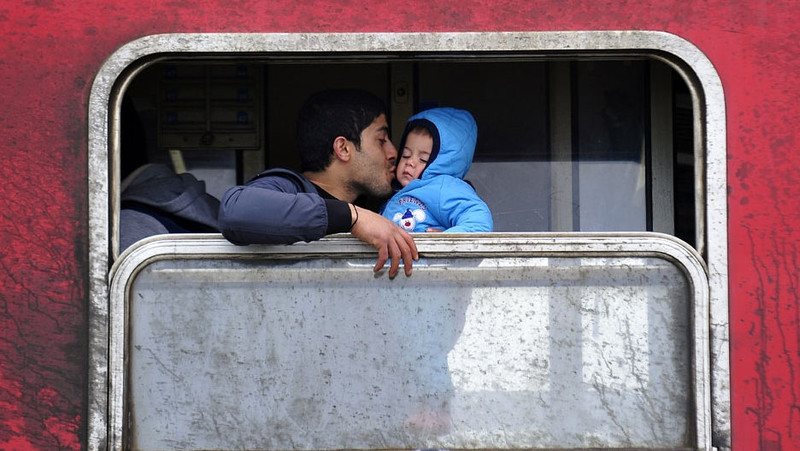However, new challenges have arisen during the handling of the unresolved issue. In a recently published report, the United Nations warned that conflict, poverty and natural disasters would aggravate the migration crisis.
In the newly issued report to the UN General Assembly, UN Secretary-General Ban Ki-moon said that more than 60 million people, half of them children, have fled violent conflicts and are now homeless refugees. In addition, some 225 million have left their homeland in search of opportunities and a better life.
In fact, a large number of the refugees are concentrated in the centre of the global migration crisis – Europe. In 2015 alone, more than a million refugees flocked to Europe, creating a serious humanitarian crisis. The burden from immigration has corroded social welfare in EU countries, resulting in security risks, social unrest and internal division among states in the European common house.
More than a year has passed, but European countries are still struggling to handle the crisis and to stop the influx of migrants. Although the EU has reached an agreement with Turkey to stop the flow of migrants from crossing the Aegean Sea to reach Greece before heading to Nordic countries, the above-mentioned agreement immediately caused migrants to divert to other routes, especially from Libya crossing Mediterranean Sea to enter Italy, creating additional burdens for the EU’s gateway nation. Since the beginning of this year, Italy has been the destination of more than 28,500 migrants.
Meanwhile, analysts have assessed the above-mentioned agreement with Turkey as extremely fragile. Germany’s the Bild newspaper has said that the EU-Turkey agreement currently could not guarantee success. That Turkish President Recep Tayyip Erdoğan - who is said to be the architect of the agreement and has been in close contact with German Chancellor Angela Merkel - has announced his resignation raises doubts as to whether Erdoğan is willing to execute his responsibility in the agreement or not. The newspaper also reported that the EU is working on an alternative plan in the case of the EU-Turkey migrant deal collapsing and Greece was chosen rather than Turkey to deal with the crisis.
In addition, the EU also faces increasing challenges amid internal disagreement concerning the deepened immigration quota. Eastern European countries like Hungary, Poland and Slovakia have vehemently opposed the allocation of 160,000 refugees to EU countries. To deal with the situation, the European Commission was reluctant to vow to punish countries that do not receive refugees at the cost of EUR250,000 for each refused case under immigration quotas, starting in May.
The migration crisis also puts the EU under political-security challenges. Merkel has warned of the risk of nationalism from coming back to Europe. She expressed her concern that far-right parties with anti-immigrant movements are receiving increasingly strong support in some EU countries.
The serious migration crisis happening in Europe requires the EU leaders to unite to make an overall solution to solve the root of the problem: the peaceful settlement of hotspots of violence and political instability in EU’s neighbouring countries. However, so far, it seems that measures by the EU have not yet been effective and aggressive enough, leading to an impasse in resolving the crisis that is becoming a global problem.
The situation has forced UN Secretary-General Ban to call on each country considering an international co-operation framework for migration issues in the form of a global agreement. The UN head expressed his hope that an intergovernmental conference on international migration issues by 2018 may adopt the agreement.
In the immediate future, on September 19 this year, the UN General Assembly will hold a high-level meeting to discuss the mass migration situation. It is considered a unique opportunity for the EU in particular and the international community in general to find a solution to the immigration problem that is becoming one of the major issues humanity needs to confront in this decade. Initially, the UN has recommended resettlement for at least 10% of refugees each year and countries to open borders to welcome refugees and migrants from war zones and disaster-affected areas.
















